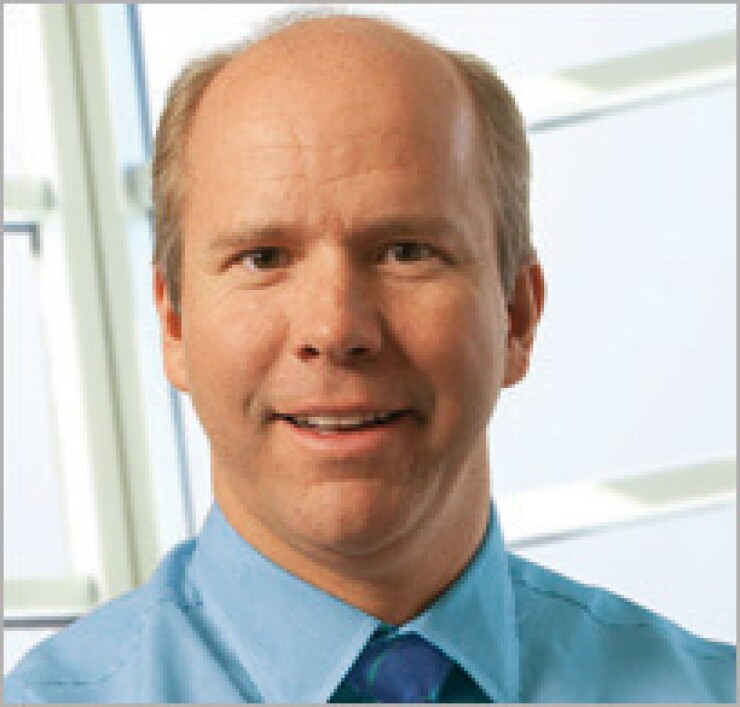
WASHINGTON Panelists at an American Enterprise Institute event Tuesday expressed concerns about U.S. Rep. John Delaney’s proposals to create a national infrastructure bank and fund infrastructure through repatriation of foreign earnings.
An infrastructure bank could have “winners and losers” and be subject to political interference, a couple of the panelists said. They made their comments after the Maryland Democrat touted his proposals at the event.
Delaney has introduced two bills, the Partnership to Build America Act and the Infrastructure 2.0 Act, that would create an infrastructure bank called the American Infrastructure Fund. The fund would not be controlled by the federal government and would have an independent board, the congressman said.
In both cases, the AIF would provide bond guarantees, loans and equity investments for qualified infrastructure projects of state and local governments. The equity investments could not exceed 20% of the cost of the projects, and interest on bonds guaranteed by the fund would continue to retain their tax-exempt status.
Under the Partnership to Build America Act, the AIF would be capitalized with the proceeds of $50 billion of American Infrastructure Bonds issued by the U.S. Treasury. Corporations would have an incentive to buy the bonds because for every dollar of bonds they purchase, the companies would be allowed to repatriate a certain amount of their overseas earnings on a tax-free basis.
Under the Infrastructure 2.0 Act, all existing foreign earnings of U.S. companies would be deemed repatriated at a tax rate of 8.75%, far lower than the country’s 35% corporate tax rate.
The deemed repatriation would raise $50 billion for capitalizing the infrastructure bank and $120 billion for the Highway Trust Fund, which reimburses states for transportation expenses but faces revenue shortfalls.
Delaney said the Infrastructure 2.0 bill has bipartisan support and appeals to businesses and labor.
“I think it has a very, very good chance in some form of becoming law this Congress,” he said.
Alex Brill, a research fellow at AEI, said he does not like the idea of funding infrastructure through repatriation. While the corporate tax rate is too high, it shouldn’t be lowered outside of a broader tax package, and more conventional sources should be used to fund infrastructure, he said.
Robert Cochran, co-founder of Build America Mutual, said that any ideas coming from Congress that focus on infrastructure, including Delaney’s ideas, are welcome. In the slides he presented at the event, he praised the fact that Delaney recognizes that investing in infrastructure requires both new financing tools and new funding sources.
But Cochran said he wants to be sure that an infrastructure bank doesn’t disrupt local initiative and the discipline of the municipal bond market. He said he is concerned that the public-sector guarantees the bank would provide would crowd out the private sector “when we have a market that is functioning quite well and has demonstrated over the past decade its capability to provide far more finance than it’s being called on to finance today.”
Delaney said that his bank would be an independent entity and the bonds used to capitalize it would not be backed by the full faith and credit of the federal government.
Cochran said there is at least the “moral hazard” that the federal government would come to the rescue if the fund’s losses exceed the amount of the initial $50 billion capitalization.
While Delaney said that the board of the bank could only take the quality of the investment and the credit when choosing which projects to support, Cochran also expressed concerns that the bank would not choose projects to support in an appropriate way.
Steve Symms, a former Republican U.S. Senator from Idaho, said he was concerned that members of Congress could try to influence which projects are supported.
Delaney said he thinks raising the gas tax is an “insufficient” way to fund the HTF because driving patterns are changing. The Infrastructure 2.0 Act would establish a bipartisan commission that would come up with recommendations for permanent funding solutions for the HTF, such as some type of vehicle miles traveled fee.
Several members of the panel suggested that vehicle miles traveled fees and/or a gas tax increase would be good ways to fund infrastructure.
Richard Geddes, an associate professor in the Policy Analysis and Management department at Cornell University, said that a vehicle miles traveled fee would be a funding source that can cover the operation and maintenance of infrastructure projects. He also suggested that state and local governments contract out to private companies for the operation and maintenance of projects.
Brill also said he thinks the country should move to using VMT fees and suggested that raising the gas tax is not a bad second-case scenario.
Symms said the gas tax should be raised and suggested that there could be a move to VMT but that there are privacy concerns with measuring how many miles people have driven.





